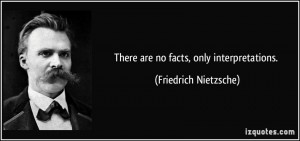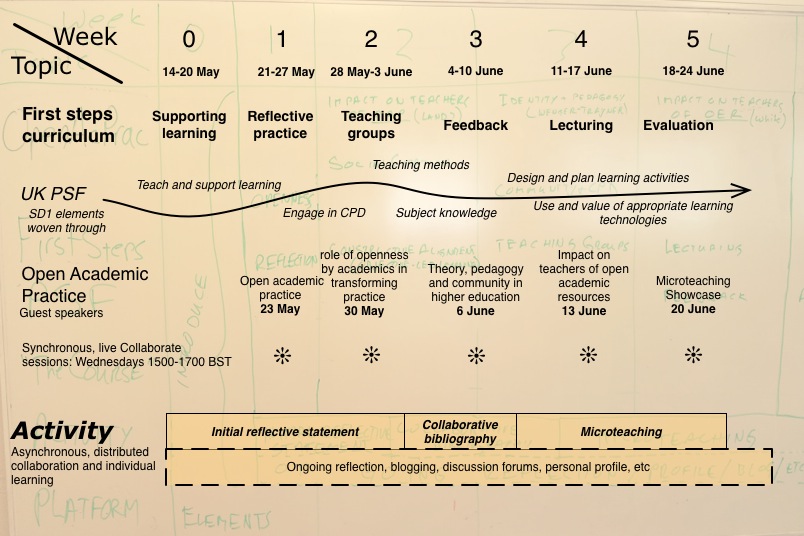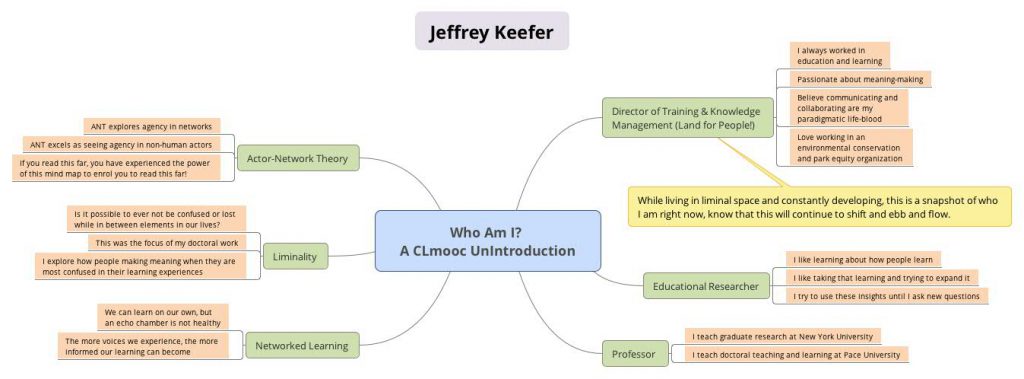Tag: MOOC
Drawn into #Rhizo15
 Like I don’t already have enough things to do, what with my full-time work managing projects in health care and my 2, yes TWO courses I teach, that I decide to explore . . . just look at, mind you, this #rhizo15 . . . thing? . . . event? . . . lifestyle cult? . . . learning experience? . . . boundary-pushing challenge?
Like I don’t already have enough things to do, what with my full-time work managing projects in health care and my 2, yes TWO courses I teach, that I decide to explore . . . just look at, mind you, this #rhizo15 . . . thing? . . . event? . . . lifestyle cult? . . . learning experience? . . . boundary-pushing challenge?
So, in the spirit of @DaveCormier, our fearless facilitator in this networked and connected learning experience, I wanted to contribute at least one blog post as a flag in the sand, so to speak, that I am following along.
OK, enough following.
I have been wanting to make a comment all day on Dave’s opening video (odd, I don’t think I have ever heard Dave actually speak before), one that I thought was Continue reading “Drawn into #Rhizo15“
Initial Musings on Reflective Practice for #fslt12
 Now that we are in our first week for of the First Steps into Learning and Teaching in Higher Education mooc (massive open online course), we find ourselves focused on the topic of reflective practice.
Now that we are in our first week for of the First Steps into Learning and Teaching in Higher Education mooc (massive open online course), we find ourselves focused on the topic of reflective practice.
Needless to say I have been reflecting on what to write here all week. Here it is Friday, and still thinking. Perhaps still reflecting is a more apt descriptor.
I think that is one of the things I am beginning to learn (or at least articulate) — we can do lots of reflecting, though without somehow making it present and sharing it, there may not be much benefit for the larger community.
While this mooc is focused around “new lecturers, people entering higher education teaching from other sectors and postgraduate students who teach,” I initially thought it may not be the best fit for me, in that I have taught online, I teach courses on how to teach online, and I study and learn and virtually live online (pun intended), but the power of a mooc to think and reflect and informally interact (potentially) with other really interesting people has really captured my thinking, and while my own blended course that I am teaching is beginning at Pace University (where I am teaching the course NURS 840: Teaching and Learning in Advanced Practice Nursing), there is always a benefit in considering one’s own teaching and learning practices. Even if I learn a few things along the way that helps my own teaching (and in the process my own learning), then kudos to us all.
I believe taking the opportunity for my own considering my work and direction, especially as I am beginning to teach my own new university course, may hopefully benefit my own students (all adult learners who have a lot of professional education and significant responsibility in their own roles). With this said, I really like the assignment that the mooc organizers have invited us to engage in (with the beginning of the Reflective Writing verbiage here):
Your reflections are your own and personal to you. Your reflective writing should therefore focus on whatever is most useful to you at this time. However, a successful MOOC relies on open sharing of ideas and resources, so we hope you will share your reflections.
If you are unsure about what to focus on, then you might try the following suggestions. If you have chosen to be assessed, please follow the guidelines below.
We suggest that in this first week you reflect on your overall experience to date as a teacher; what kinds of students have you taught, what have you discovered from the experience, and what have you most enjoyed in your teaching?
With this in mind, I am increasingly very aware that my biggest challenge with sharing this reflecting is just starting the writing process. I find the same challenge as I work on my doctoral thesis — I have all of it floating around in my mind, with my biggest challenge to sit and begin to write about it.
Phew, with this start now out of the way, I find I am already (and quite naturally, I might add) considering the suggested elements of the The UK Professional Standards Framework for teaching and supporting learning in Higher Education 2011 in this light, and expect to continue this thinking in another post tomorrow.
Until then, good reflective practice to you.
First Steps into Learning & Teaching in Higher Education Begins #fslt12
 I am planning to attend the First Steps into Learning and Teaching in Higher Education massive open online course (mooc) that begins today and runs through June 22. Focused on “new lecturers, people entering higher education teaching from other sectors and postgraduate students who teach,” I am hoping to spend some time over the next few weeks on this to help my own online teaching, something I learned quite informally in the early days of online teaching and learning.
I am planning to attend the First Steps into Learning and Teaching in Higher Education massive open online course (mooc) that begins today and runs through June 22. Focused on “new lecturers, people entering higher education teaching from other sectors and postgraduate students who teach,” I am hoping to spend some time over the next few weeks on this to help my own online teaching, something I learned quite informally in the early days of online teaching and learning.
Participating in this as a mooc, one that is both structured (it is funded and offers formal university education) while also keeping the best elements of a mooc (open education, constructionist perspectives through leveled expertise, a schedule allowing for us to take what we need and share where we see a need, a workable timeline and realistic level of commitment, and the opportunity to meet new colleagues and learn in community), is what I am hoping to experience.
I am glad that the organizers of this mooc have a central “home” location on the website and via Moodle with an easy to follow schedule, so will begin to check them out later today.
While I have participated in several moocs over the years, I am looking forward to this one as the topic is specific, useful for my professional practice, limited in scope and time, and includes some people (Jenny Mackness and Sylvia Currie) whose work I have long since found valuable and solid and cutting edge and trustworthy. I hope to get and share some ideas and hopefully expand my own network of colleagues.
Clarification on the question, “What is a MOOC?”
This may not be a big issue, but when I mentioned this to a F2F colleague this week and was asked what this thing is, I just stood there, speechless.
I have participated in a rather interesting discussion about some of these issue on Frances Bell’s blog, though even there we skirted the issue of what this thing is. So, searching for the response from the facilitators themselves, I came across The MOOC Model for Digital Practice as I reviewed the Week 1 course Orientation page, and came across the following useful definition which I will quote here at length due to its comprehensive form and complexity (pp. 10-11):
What is a MOOC?
A MOOC is an online course with the option of free and open registration, a publiclyshared curriculum, and open-ended outcomes. MOOCs integrate social networking, accessible online resources, and are facilitated by leading practitioners in the field of study. Most significantly, MOOCs build on the engagement of learners who self-organize their participation according to learning goals, prior knowledge and skills, and common interests. The term came into being in 2008, though versions of very large open online courses were in existence before that time (McAuley, 2010). MOOCs have been offered in conjunction with academic institutions and independently by facilitators: to date, topics have remained within the E-learning and educational technologies fields. Some MOOCs have had upwards of 2000 registrants. MOOCs share in some of the conventions of an ordinary course, such as a predefined timeline and weekly topics for consideration, but generally have no fees, no prerequisites other than Internet access and interest, no predefined expectations for participation, and no formal accreditation (there are several instances of MOOCs that are affiliated with a university and provide learners the option of enrolling formally in the course and submitting assignments for marking).
News that a MOOC will be offered is typically spread through online social networks and email lists. Registration and course topics are offered through a central course site developed by facilitators: participants can use the central site to interact and discuss ideas, or may share their contributions from their own blogs and develop and maintain ties through other technologies such as Twitter. The course operates on an open and a-hierarchical invitation to participate in and scaffold activities and discussions: a true “teacher as learner as teacher” model (Siemens, 2006). Participation in a MOOC is emergent, fragmented, diffuse, and diverse. There is no credit or certificate offered for completion. Facilitators of MOOCs volunteer their time, and comment on participants’ input, but it is expected that the community of participants will be the primary source of feedback for the majority of work contributed. This is in keeping with the participatory collaboration and commenting norms within social media.
With this stated, it seems to me that, in a nutshell, a MOOC is:
An open online course on some topic around which participants interact with one another where and when they want, based on the strength of the connections between participants who self-determine their interaction. The connections between social media and other websites can be traced through links and a tag (#change11).
While I do not want to be locked into a definition, as a MOOC is a moving target, I do want to have a clearer ideas of whaty this thing is that stretches out for months and months ahead. How does this seem to others participating in this?
